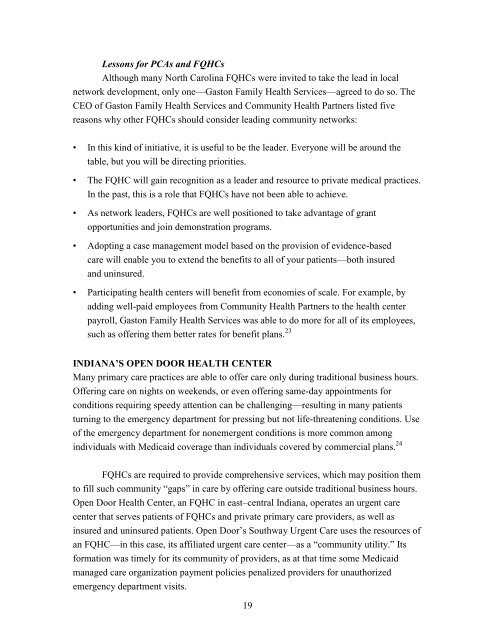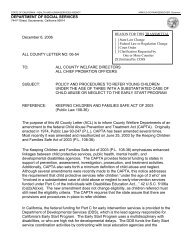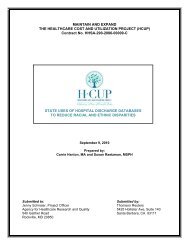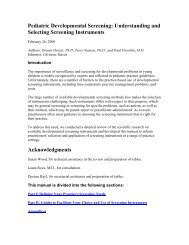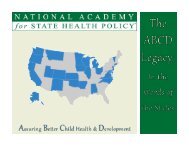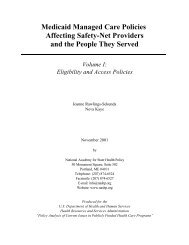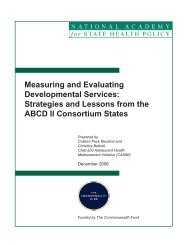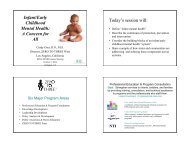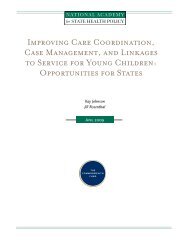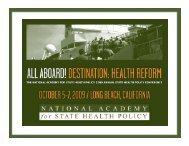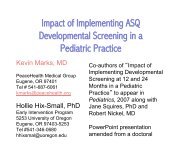Developing Federally Qualified Health Centers into Community ...
Developing Federally Qualified Health Centers into Community ...
Developing Federally Qualified Health Centers into Community ...
You also want an ePaper? Increase the reach of your titles
YUMPU automatically turns print PDFs into web optimized ePapers that Google loves.
Lessons for PCAs and FQHCs<br />
Although many North Carolina FQHCs were invited to take the lead in local<br />
network development, only one—Gaston Family <strong>Health</strong> Services—agreed to do so. The<br />
CEO of Gaston Family <strong>Health</strong> Services and <strong>Community</strong> <strong>Health</strong> Partners listed five<br />
reasons why other FQHCs should consider leading community networks:<br />
• In this kind of initiative, it is useful to be the leader. Everyone will be around the<br />
table, but you will be directing priorities.<br />
• The FQHC will gain recognition as a leader and resource to private medical practices.<br />
In the past, this is a role that FQHCs have not been able to achieve.<br />
• As network leaders, FQHCs are well positioned to take advantage of grant<br />
opportunities and join demonstration programs.<br />
• Adopting a case management model based on the provision of evidence-based<br />
care will enable you to extend the benefits to all of your patients—both insured<br />
and uninsured.<br />
• Participating health centers will benefit from economies of scale. For example, by<br />
adding well-paid employees from <strong>Community</strong> <strong>Health</strong> Partners to the health center<br />
payroll, Gaston Family <strong>Health</strong> Services was able to do more for all of its employees,<br />
such as offering them better rates for benefit plans. 23<br />
INDIANA’S OPEN DOOR HEALTH CENTER<br />
Many primary care practices are able to offer care only during traditional business hours.<br />
Offering care on nights on weekends, or even offering same-day appointments for<br />
conditions requiring speedy attention can be challenging—resulting in many patients<br />
turning to the emergency department for pressing but not life-threatening conditions. Use<br />
of the emergency department for nonemergent conditions is more common among<br />
individuals with Medicaid coverage than individuals covered by commercial plans. 24<br />
FQHCs are required to provide comprehensive services, which may position them<br />
to fill such community ―gaps‖ in care by offering care outside traditional business hours.<br />
Open Door <strong>Health</strong> Center, an FQHC in east–central Indiana, operates an urgent care<br />
center that serves patients of FQHCs and private primary care providers, as well as<br />
insured and uninsured patients. Open Door’s Southway Urgent Care uses the resources of<br />
an FQHC—in this case, its affiliated urgent care center—as a ―community utility.‖ Its<br />
formation was timely for its community of providers, as at that time some Medicaid<br />
managed care organization payment policies penalized providers for unauthorized<br />
emergency department visits.<br />
19


